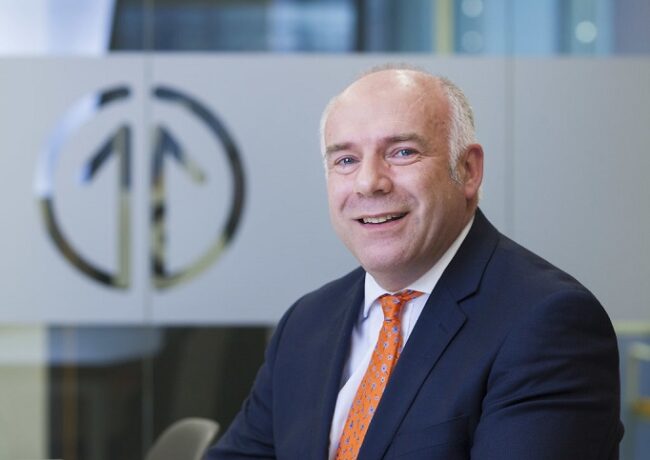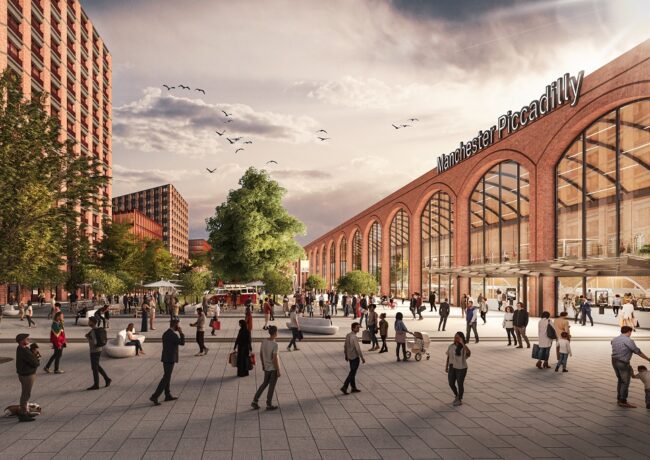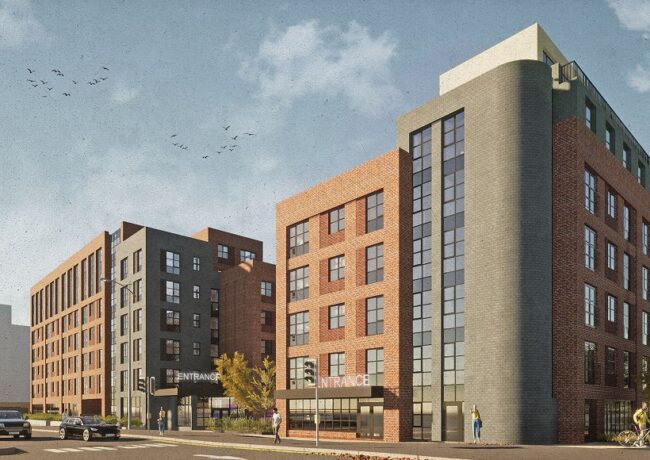TfN bullish on Northern Powerhouse Rail prospects
Transport for the North believes it has Government support to make the Northern Powerhouse Rail high-speed network a reality, the project’s director Tim Wood has told Place North West.
A strategic outline business case for the “bold and ambitious” Northern Powerhouse Rail plan is now in the latter stages of preparation, with a final version to be agreed on by the North’s six largest city regions – Liverpool, Manchester, Leeds, Sheffield, Hull and Newcastle – ahead of submission to the Secretary of State for Transport, scheduled for 6 December.
The proposals are for a combination of new track, interventions on existing infrastructure and some reopenings to create a network that will add effectively create a metro system between key cities, with reduced journey times and increased volume of services.
Targets include the cutting of Manchester-Leeds journey to around 30 minutes, with six services an hour, and Manchester-Liverpool to 20 minutes. Manchester-Leeds is one of two key priority projects, along with improvements in the east.
Wood told Place: “The country is running on one engine – it has all been about the South East. What this is about is joining together six city regions to turbo-charge the North. The only way to build the North’s GVA is to be able to move large numbers of people effectively, giving businesses and people the access to workforces and markets they need.”
No details are available as yet as to how and where the new build elements might be created, a process that has been controversial in the HS2 programme. New track would require a lengthy consultation process and require a hybrid Parliamentary Bill.
However, the creation of TfN as a statutory body this year has given confidence to the North’s civic leaders, with leaders now believing they have the unified voice required to make a difference. Wood acknowledges there’s a lack of confidence in public transport and the UK’s ability to deliver on major projects, but believes that is better addressed from the North than Whitehall.
He said: “A lot of people shy away from using the train every day – people have doubts that they’ll arrive, that they’ll get a seat, that they’ll get connectivity. Yes, you do see a lot of major infrastructure projects in the UK delayed, but Government is pushing us for our outline business case, they want to see this happen – it is co-cliented with the DfT, we’ve both held the pen on this, and that’s important to note.”
The resource is there to make it happen, Wood said, with NPR allocated £30 to £35bn of TfN’s £60bn to £70bn strategic plan over 30 years as TfN looks to put in motion that plan’s overall goal, to increase GVA by £100bn by 2050.
Wood said he is optimistic that work could start as soon as 2024: “If we don’t start now, the country is never going to get that second major economic area that it needs. Our ports are a key part of this, particularly bearing in mind Brexit and the need to improve the speed that goods can come and go.”
The plans could include the capacity to build new rolling stock, while Wood said that “there could be differences in procurement to how things are done today”.
The benefits for Liverpool and Manchester areas outlined by TfN are set out as follows:
- Liverpool: A dramatically improved network operating with greater capacity and significantly higher speeds with link to HS2 and enhanced access to Manchester Airport. More than 100,000 extra businesses will be within an hour’s reach of Liverpool and nearly 2m more people within 90 minutes of the city centre.
- Manchester: The programme will see new and faster connections to Leeds via Bradford as well as vastly improved connections to Sheffield, Liverpool and Manchester Airport. Nearly 70,000 extra businesses and over 1m more people will be within 90 minutes’ travel time of the city centre.





Maybe TfN could worry about getting a decent slow speed rail service that works. I wholeheartedly support future ambitions but a reliable current offer wound be a sound starting point. It’s no use having available infrastructure when the train operators can’t seem run a service.
By MP3
Sorry….seem to run a service.
By MP3
Agree with the comment above. Please just sort out the current network. Long delays, trains skipping my stop to make up time, missing connections due to a late running services. It’s a dreadful mess and an anxious experience every time not. It has got worse after initially getting better post-electrification.
Why not just do a Crossrail for the North? Stick it all in tunnel and get Elon Musk involved.
By Ted
“Northern Powerhouse” is a marketing strapline. Nothing more nothing less. Professionals and media who keep repeating the phrase are merely endorsing a piece of political subterfuge. There is no money, no coherent policy plan or any kind of concerted effort on the part of Govt. to match the economic agglomeration of London by creating a substantial counterforce in the north. It’s froth. And people parroting the phrase do the north a dis-service and allow the politicians to get away with it.
By A Developer
No mention of the rail freight capacity required to support Liverpool 2. Current estimates are 38 trains per day, for which there is no capacity. Priority funding needs to found to start building the start of HS3 from Liverpool to Manchester, via Manchester Airport. This would eventually link in with HS2 when it is built, but in the meantime free up capacity for freight going East to Manchester and beyond.
By Forward Thinker